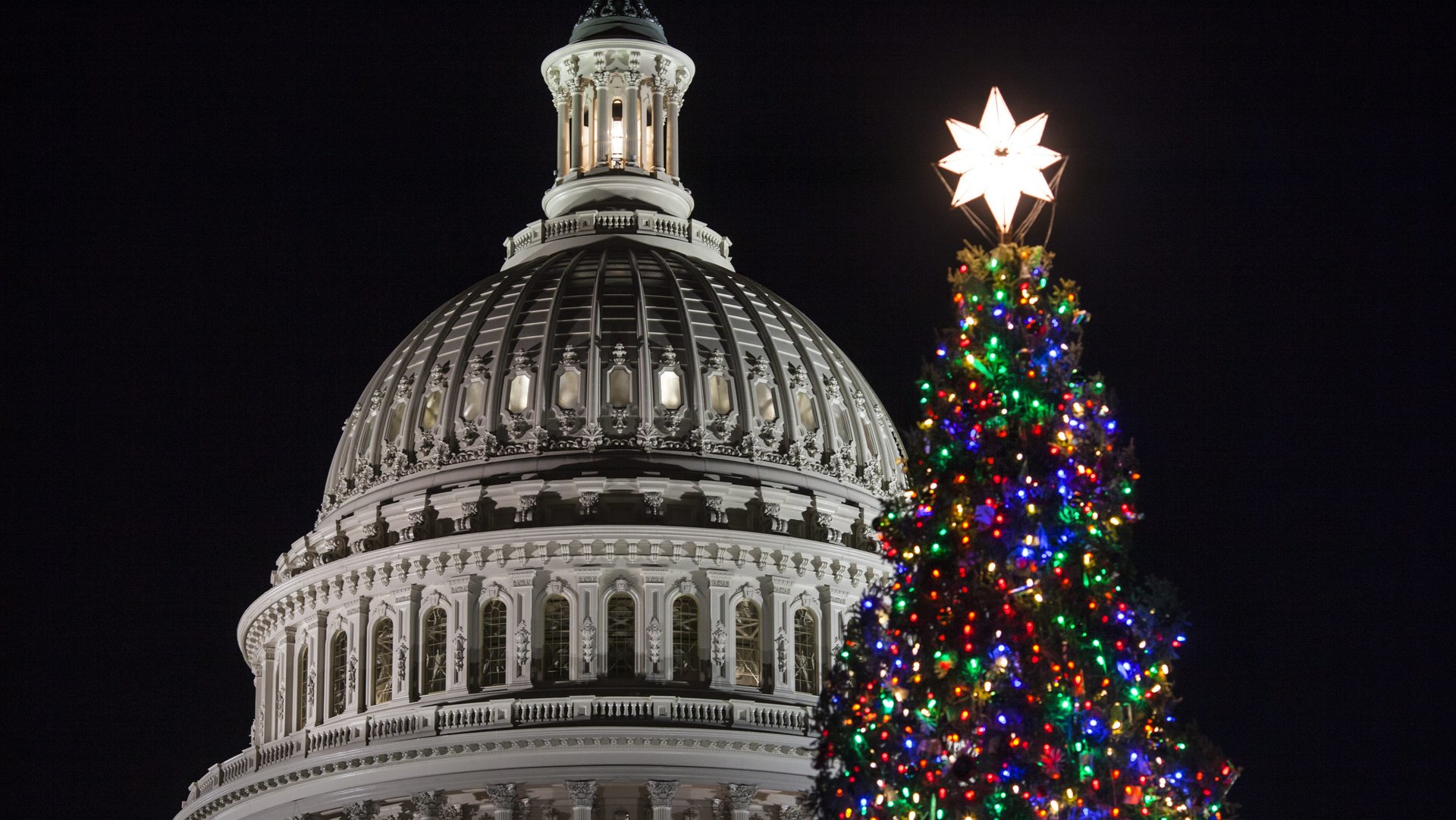Here are the 12 Republicans who voted against a tax plan that will “mess up America”
Late Tuesday and early Wednesday, House and Senate Republicans passed what many are calling the most thorough overhaul of US tax laws in decades—”the biggest in history,” if you’re Donald Trump—one that saw no support from a single Democratic lawmaker in either house.


Late Tuesday and early Wednesday, House and Senate Republicans passed what many are calling the most thorough overhaul of US tax laws in decades—”the biggest in history,” if you’re Donald Trump—one that saw no support from a single Democratic lawmaker in either house.
The bill, H.R.1, will permanently cut taxes for corporations, remove the penalty for not buying health insurance, and also temporarily cut taxes for middle-class families, although many will pay more or see their gains fade away in a decade, according to an analysis by the Tax Policy Center, a joint initiative of the Urban Institute and Brookings think tank.
“In a few years, a majority of the middle class will see their taxes go up,” said senator Charles Schumer of New York in his closing arguments against the bill. “What kind of middle class relief is that?” Schumer at times became exasperated as Republican colleagues talked during his remarks, at one point telling them: “This is serious stuff. We believe you’re messing up America. You could pay attention for a couple of minutes.” (You can watch his arguments here, close to the end.)
In the Senate, which voted during the wee hours today, every Republican lawmaker voted for the bill—except John McCain, who is battling brain cancer—leading it to pass 51-48.
The tax overhaul is expected to add close to $1.5 trillion dollars to the US deficit over a decade. It takes away the penalty for not buying health insurance—the individual mandate in Obamacare—a move that the Congressional Budget Office has said will lead the numbers of uninsured to rise by 13 million by 2027, while saving the government nearly $340 billion. But Republicans said the bill helps many constituencies Democrats should be in favor of helping, such as single mothers, and that the mandate was often paid by people in their states earning less than $25,000 a year. Senator Ted Cruz of Texas said of the Democrats ahead of the vote: “They are so united in their rage against president Trump that they are willing to tell middle-class voters in their states that ‘we don’t care.'”
In the House, which voted Tuesday evening for the bill 227-203, 12 Republicans voted against the bill—23 Republican “no” votes were needed for the bill to fail (paywall). They were mostly the same Republicans who voted against an earlier version of the tax bill, and they were mainly from the east or west coast.
They were:
- From California: Darrell Issa, Dana Rohrabacher
- From New Jersey: Rodney Frelinghuysen, Leonard Lance, Frank A. LoBiondo, Christopher H. Smith
- From North Carolina: Walter B. Jones
- From New York: Dan Donovan, John B. Faso, Peter T. King, Elise Stefanik, Lee Zeldin
The two California Republican representatives who voted against the bill cited the removal of a deduction for state and local taxes, known by the acronym SALT, which is expected to impact high earners in Democratic-leaning states. It’s also the main reason the Republicans in other states who voted against the bill did so.
The House and Senate each passed their own versions of the bill, which then had to be reconciled. Because of procedural errors, the bill still has to go back to the House for a revote, even though it already passed there Tuesday. Schumer pointed to that fact as symptomatic of the “hasty and reckless process that produced this legislation.”
The House will reconvene at 9am in order to pass a measure conforming to the Senate version. Trump still has to sign the bill into law—while it’s not clear when that will happen, he already has plans to take a victory lap today.